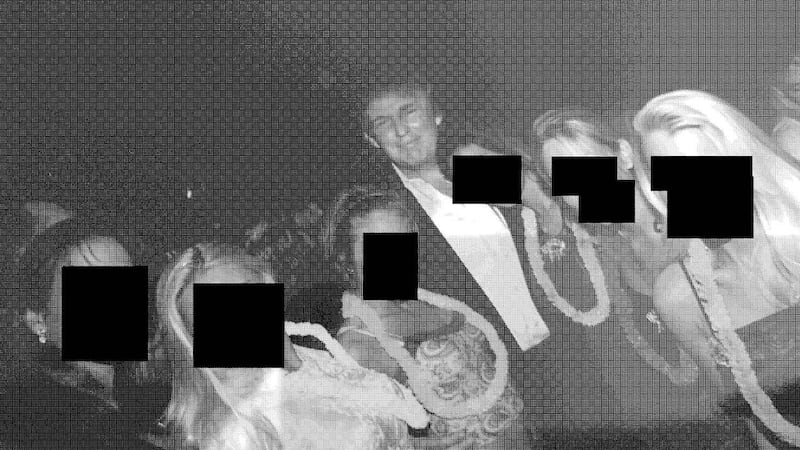In the East Room of the White House on Saturday night, the director of the FBI, Kash Patel, was huddling with Tulsi Gabbard, the director of national intelligence.
It was just a few hours after Elon Musk threatened to fire federal workers who failed to send an email describing what they had done during the working week. The two cabinet officials found a quiet spot to confer on the sidelines of a dinner for the nation’s governors.
Obeying Musk’s order could reveal national security secrets and other sensitive information, they agreed, according to three people familiar with the conversation. Patel and Gabbard were still wholeheartedly behind Musk’s goal of slashing the size of the federal workforce. But they could not allow their workers to follow the directive, even if it would defy Musk – and, more importantly, annoy the president.
Across the top ranks of the government, there were more conversations. Gabbard spoke with John Ratcliffe, the CIA director. Chiefs of staff and senior personnel officers at the defence department and other agencies consulted one another about what to do, even as managers around the country fielded panicked questions from employees about whether they were at risk of being fired from their jobs.
Cabinet secretaries at major agencies found themselves struggling to figure out how to respond to a directive from the president’s most powerful adviser without compromising their own staff. Several secretaries and top staff at major agencies that deal with sensitive matters called the White House repeatedly over the weekend looking for guidance, according to people with knowledge of the matter.
Patel was the first to push back publicly.
“The FBI, through the Office of the Director, is in charge of all of our review processes, and will conduct reviews in accordance with FBI procedures,” Patel wrote in an email to the bureau. “When and if further information is required, we will co-ordinate the responses. For now, please pause any responses.”
Patel, who has been an outspoken critic of the agency he now leads, later told FBI agents during a video conference that his response to Musk’s email was an example of how he had their backs, according to two people familiar with his remarks.
Empowered by President Donald Trump, Musk and his teams have swarmed through the federal government, moving quickly and with blunt force. Trump has denied any tension between his billionaire adviser and the cabinet secretaries who are in charge of 2.3 million federal employees.
“ALL CABINET MEMBERS ARE EXTREMELY HAPPY WITH ELON,” the president wrote on social media on Wednesday morning.
[ Taoiseach invited to White House by Trump to mark St Patrick’s DayOpens in new window ]
Later that day, at his first cabinet meeting, Trump responded to a reporter’s question about possible tensions by asking his most senior aides, “Is anyone unhappy with Elon?” After a few awkward moments, Howard Lutnick, the commerce secretary, started clapping loudly. The rest of the cabinet members followed soon after with their own applause for Musk.
It was a collective endorsement under pressure and with Trump watching. Some of the secretaries looked uncomfortable as Musk lectured them about his activities at the president’s invitation.
And yet, it is those very cabinet secretaries who were dealing with the confusion and panic inside the government buildings they oversee as Musk’s actions ripple through the bureaucracy. Some have privately expressed frustration with the chaotic process, if not the ultimate goals of Musk’s moves.

To many current law enforcement officials, the demand from Musk, however short-lived, was the latest effort to intimidate the federal workforce with threats of termination, at a time when the administration is trying to fire large numbers of employees without regard for civil service rules.
Musk defended his actions during his appearance at the cabinet meeting.
“I actually just call myself a humble tech support,” he said, a line he has used in most of his public appearances in the past month.
In fact, Musk’s team at the department of government efficiency (Doge) has been doing far more than tech support. Team members effectively shut down the US Agency for International Development (USAID), leading to the firing of most of its employees. Doge members have requested and received access to sensitive files at the treasury department. They have pushed for a purge of federal employees with a kind of buyout plan with the threat of termination.
At the cabinet meeting, Musk insisted that his actions were all designed to keep the country from going bankrupt by slashing 15 per cent of the government’s overall spending. He said he received permission from Trump a week ago to threaten to fire any employee that did not respond about their work week.
“The president encouraged me via Truth Social and also by a phone call to be more aggressive,” Musk told reporters. “And I was like, okay, yes sir, Mr President, we’ll indeed do that. The president’s the commander in chief. I do what the president asks. I said, ‘Can we send out an email to everyone, just saying, what did you get done last week?’ The president said yes. So I did that.”
His social media post on Saturday was followed quickly by an email from the office of personnel management (OPM) to every federal employee telling them they had a midnight deadline. (Some 48 hours later, adding to the confusion, the office said the directive was voluntary.)
Musk’s demands – and the surprising way they were delivered in a social media post on a Saturday – were initially rejected by more than half of the president’s cabinet.
The department of health and human services sent an email over the weekend saying that the leadership was working with personnel officials “on how best to meet the intent of yesterday’s notice to employees while being mindful of the sensitivity of the information and initiatives” at the department. “Employees are therefore directed to ‘pause’ activities in answering the OPM email,” it added.
Chris Wright, the secretary of energy, wrote to his employees, “the Department of Energy is responsible for reviewing the performance of its personnel and will conduct any review in accordance with its own procedures. When and if required, the Department will provide a co-ordinated response to the OPM email.”
Ambassador Tibor P Nagy, a top official at the state department, wrote that “no employee is obligated to report their activities outside of their Department chain of command”.
Still, if the top officials at those agencies still had reservations about Musk’s actions on Wednesday when they convened at the White House with Trump, they made no attempt to say so.
Secretary of state Marco Rubio sat next to the president and did not object when Musk described his effort. Wright made no comments either. And Robert F Kennedy Jr, the health secretary, did not object to anything that Musk said.
“I think everyone’s not only happy; they’re thrilled,” Trump told reporters on behalf of the cabinet.
The applause came shortly after.
– This article originally appeared in The New York Times.
2025 The New York Times Company
















